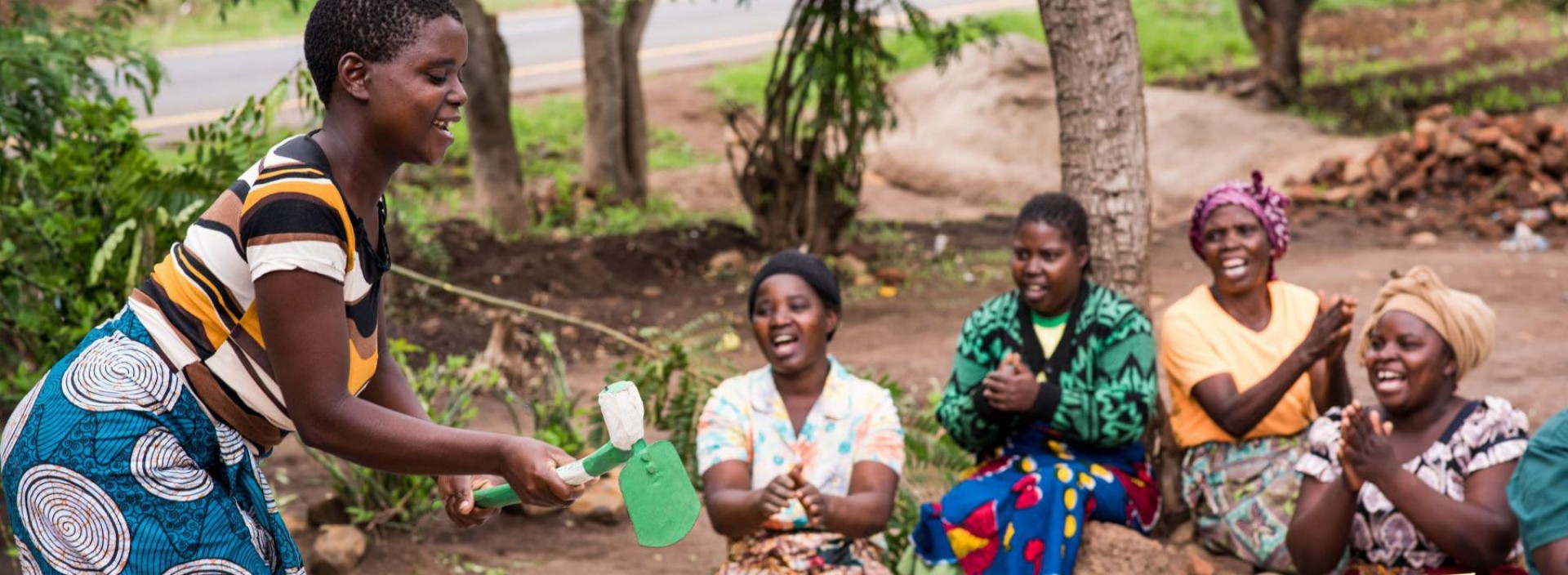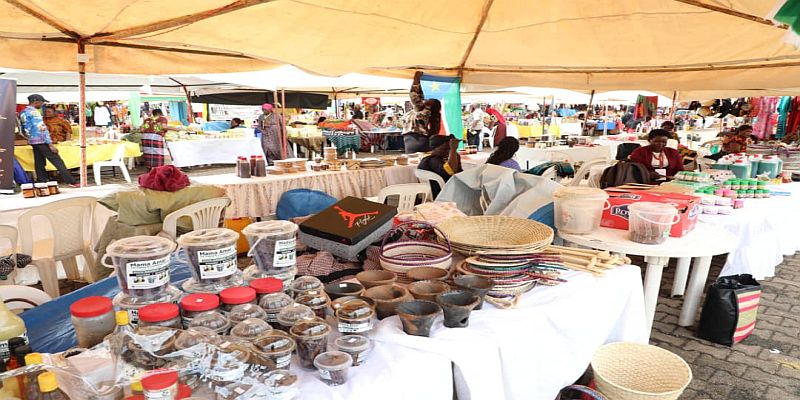Sustainable Investment for Small and Medium Enterprises (SMEs) in Africa: Prospects and Challenges for the Next Decade.
Addressing the social and climate crisis requires the net-zero transition of millions of SMEs
globally. SMEs have a significant social and environmental footprint and must adopt cleaner
business models.
As social-entrepreneurs and eco-innovators, they also have a key role to
play in devising innovative, impactful solutions. Access to finance is essential for SMEs’
investments in impactful solutions, however, small businesses face considerable challenges in
tapping into the growing pool of sustainable finance.
This challenge is likely to grow as
financial institutions seek to comply with mandatory environmental and social management
reporting requirements.
This article examines the sustainable Investment landscape for SMEs in Africa, the various
actors in the ecosystem, and the key opportunities and barriers affecting the supply of and
demand for sustainable finance. It provides an overview of the key instruments to support
SMEs’ access to sustainable finance. It identifies challenges and considerations for future
investment decisions and support from the policy level.
The urgency of addressing climate change and social challenges continues to grow and is
recognised as a priority for many investors, governments, and businesses in many countries
worldwide. Tackling the climate crisis calls for the green and net-zero transition of millions
of SMEs. In recent years, the supply of sustainable finance has been growing rapidly in
response to wider demand for sustainable products and for greater transparency and
accountability of financial institutions (FIs) and large enterprises concerning their
environmental and social performance.
Investors are seeking to ensure that their financing is
going towards investments that are aligned with better environmental and social outcomes.
Regulators, too, are demanding greater transparency on the non-financial performance of FIs’
operations and investments, mainly through the introduction of non-financial disclosure
requirements. Meanwhile, policymakers, including those focusing on SMEs and startups in
Africa, are seeking to incentivise more private lending for sustainability purposes through
financial incentives, guarantees, and other instruments. Reputational considerations and the
new product and market opportunities afforded by the green and net-zero transition are
important drivers for FIs and large enterprises to provide sustainable finance to SMEs and the
Startup ecosystem in Africa.
What is Sustainable Finance?
Sustainable finance incorporates environmental, social, and governance (ESG) factors in
investment decisions. This means, beyond the traditional considerations of maximising
shareholder and debt-holder value through financial returns, sustainable finance also reflects
sustainability-related factors, including the impact on the environment and society more
broadly. Environmental considerations (“E” pillar) can include climate change mitigation and
adaptation, as well as other environment and nature-related factors such as pollution
reduction, biodiversity preservation, and the circular economy ( European Commission,
2021 ).
Rationale
The drivers for SMEs and startups to adopt sustainable mechanisms in Africa are on the rise,
as SME participation in value chains, access to finance, and competitiveness increasingly
depend on businesses’ ability to measure, report on, and improve their sustainability
performance. Access to finance by SMEs and Startups requires adherence to emerging
regulatory requirements by FIs and large enterprises, or fund managers. They are subjected to
mandatory reporting on the sustainability performance of their entire value chain and the
environmental performance of their financed portfolios.
The business case for investments in sustainability is not apparent to SMEs and startups in
Africa, since these investments often entail high up-front costs with uncertain returns over the
long term, due to evolving market demand, regulatory changes, and technological
advancements. SMEs and startups also face challenges in tapping into the growing pool of
sustainable finance.
Most African SMEs and startups lack knowledge of the steps needed to
achieve net zero, as well as adequate knowledge and information about the available
financing options. They have to navigate a complex ecosystem with a growing number of
actors, including public and private financial institutions, policy makers, regulators, Fintech
companies, Environmental, Social and Governance (ESG) rating providers, consulting
service providers, auditors, accountants, and others. Furthermore, as financial institutions
seek to comply with mandatory environmental reporting requirements, SMEs and startups
risk losing out on sustainability-linked finance due to their limited capacity to produce data
and reports on their sustainability performance, including their daily business assessments and performances.
Prospects
Financial Service Providers (FSPs) in African countries recognize and see an opportunity in
the increasing availability of sustainable-oriented finance. Green finance flows, for example,
from public actors (such as DFIs, donors, and multilateral banks) have increased. The
European Commission committed EUR 4.03 billion of public finance to developing
economies in 2022, with over 50% targeted to fund climate adaptation activities, with an
increase to 30% for the 2021 -2027 Period.
With abundant natural resources and pressing climate risks, Africa’s SMEs are in a powerful
position to not only adopt but shape global Sustainable Investment standards that will not
only protect our planet but also improve lives and economies. Sustainability is not an option;
it’s the only way forward. Africa’s SMEs and startup journey promises to reshape its
financial markets and offer valuable lessons to the global sustainable finance movement.
Africa Eats, a pan African holding company, focuses on feeding Africa, is among the fastest-
growing sustainability-focused companies in in food and agriculture space.
Why should SMEs and startups in Africa embrace the sustainable investment movement?
-
Implementing sustainable investment principles into your business helps to mitigate
potential risks that can ultimately become problems in the future.
-
It helps to minimize environmental, social, and governance costs while increasing
productivity and income.
-
Helps to improve transparency and productivity through clear communication
channels among workers by having human resources policies and effective
occupational health and safety management procedures in place.
-
In some countries, notably the developed countries, regulatory requirements are
changing, and mandatory non-financial disclosure is expected to include listed SMEs
by 2030. In this context, considerable concerns have been raised about SMEs’
capacity to meet reporting requirements.
Challenges
-
Traditional financial service providers, such as banks, are less willing to lend to
businesses with risks that are unfamiliar to them. Although the implementation of
sustainable finance mechanisms helps to identify risks earlier, most financiers do not
have dedicated skills allocated to understanding and assessing new social and climate-
related business models and are generally wary of lending to or investing in business
models and markets they do not understand.
-
Most financiers are banks providing debt, so they do not get any upside should the
high-risk opportunity result in exceptional growth. They may be inclined to charge a
higher interest rate to account for the higher perceived risk or not invest at all.
-
Critical sectors for green businesses tend to be difficult to lend to, with agriculture
being particularly challenging. Despite the agricultural sector accounting for at least
15% of Africa’s GDP and being connected to the livelihoods of over 65% of the
African population, the sector receives less than 3% of banking credit. Agriculture,
Forestry, and Other Land Use (AFOLU) also contributes about 57% of Africa’s
emissions due to unsustainable practices. If current practices continue, the United
Nations (UN) estimates that within 60 years, topsoil will be lost, and therefore result
in a shortage in the food supply.
-
There is a limited business case for SMEs to adopt green practices, which often
require large capital expenditure.
-
Demand for green products is still low, and few consumers are willing to pay a
premium for such products, particularly when cheaper substitutes exist. Consumer
demand for eco-friendly products is weak in Africa, resulting in the weak adoption of
greening practices by SMEs.
-
Most Small and Medium Enterprises (SMEs) lack the requisite skills to develop
greening and sustainable production processes for their business.
-
SMEs do not have enough revenue to afford hiring dedicated capacity to help with
sustainable operations. SMEs’ management is also entirely focused on the core
operations of the business and therefore does not have knowledge of the benefits and
trade-offs of adopting sustainability. As such, SMEs are unlikely to consider
sustainable options in the short-to-medium term.
In conclusion, SMEs’ access to sustainable finance has broader implications. Capital
allocation and investment decisions depend increasingly on the consideration of sustainability
factors as financial institutions and investors seek to align their portfolios with sustainability
in response to climate-related risks, social impact, incentives, and opportunities. In this
context, to tap into the growing pool of sustainable finance, SMEs must strengthen their
capacity to measure and report on their social, governance, and environmental performance
and efforts, as well as devise and act upon credible, science-based targets and strategies for
achieving sustainability.
On the other hand, currently, there is no universal standard way of defining and measuring
sustainable investment focusing on social and environmental sustainability. Sustainability-
related integration methodologies differ considerably in how investors measure performance
and the weights they place on different inputs.
There are currently over 1000 different metrics
for calculating social and environmental sustainability scores across an estimated 140
providers globally (Carney, 202; Impact Investor, 2021). For example, while the IFC has its
own Environmental and Social Management System guiding tool, the World Bank has its
own ESG data portal to support sustainability, and the United Nations has impact analysis
tools to support the implementation of sustainable finance policies and practices for
businesses. Moreover, even among the main ratings providers, sustainability scores vary
considerably, so a single company can have vastly different ratings depending on the
provider.
Public and private banks and other financial institutions have their methodologies to
assess sustainability-related risks and opportunities, which not only provides room for
discrepancies and potential “greenwashing” of banks’ performance, but can also discourage
their swifter action toward aligning their portfolios with sustainability. The lack of
transparency in how different data inputs are measured and how the scores are calculated
across different providers makes it difficult to discern the relative quality of the assessments.
All of these challenges have implications for the growth of the pool of sustainable finance,
including the supply of financing for SMEs in Africa.






